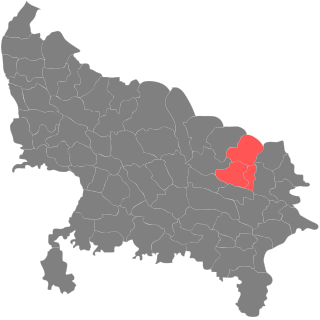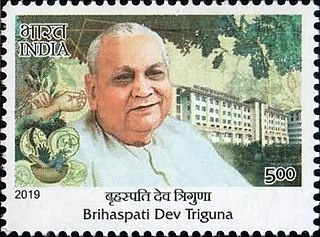Basti is an enema of herbal oils or decoctions used in Ayurveda.
Basti is one of the five Pradhana Karmas of Panchakarma and it is used to treat vata disorders.
Basti is an enema of herbal oils or decoctions used in Ayurveda.
Basti is one of the five Pradhana Karmas of Panchakarma and it is used to treat vata disorders.

Ayurveda is an alternative medicine system with historical roots in the Indian subcontinent. The theory and practice of Ayurveda is pseudoscientific. The Indian Medical Association describes Ayurvedic practitioners who claim to practice medicine as quacks. Ayurveda is heavily practiced in India and Nepal, where around 80% of the population report using it.
Maharishi Vedic Approach to Health (MVAH) is a form of alternative medicine founded in the mid-1980s by Maharishi Mahesh Yogi, who developed the Transcendental Meditation technique (TM). Distinct from traditional ayurveda, it emphasizes the role of consciousness, and gives importance to positive emotions. Maharishi Ayur-Veda has been variously characterized as emerging from, and consistently reflecting, the Advaita Vedanta school of Hindu philosophy, representing the entirety of the ayurvedic tradition.

Dhanvantari is the Hindu god of medicine and an avatar of Lord Vishnu. He was the king of Varanasi. He is mentioned in the Puranas as the god of Ayurveda. He, during the Samudramanthan arose from the Ocean of Milk with the nectar of immortality. It is a common practice in Hinduism for worshipers to pray to Dhanvantari seeking his blessings for sound health for themselves and/or others, especially on Dhanteras or Dhanwantari Trayodashi.

Dosha is a central term in Ayurveda originating from Sanskrit, which can be translated as "that which can cause problems", and which refers to three categories or types of substances that are believed to be present in a person's body and mind. Beginning with twentieth-century Ayurvedic literature, the "three-dosha theory" has described how the quantities and qualities of three fundamental types of substances called wind, bile, and phlegm fluctuate in the body according to the seasons, time of day, process of digestion, and several other factors and thereby determine changing conditions of growth, aging, health, and disease.

Basti Division is an administrative geographical unit of Uttar Pradesh state of India. Basti is the administrative headquarters of the division. Currently (2005), the division consists following districts: Basti district and Basti division carved out from Gorakhpur district.

Basti district is one of the districts of Uttar Pradesh state, India, and a part of Basti Division. Basti city is the district headquarters.

Brihaspati Dev Triguna (1920–2013) was a Vaidya or Ayurveda practitioner and an expert in Pulse diagnosis . He completed his formal ayurvedic studies under the guidance of Rajvaidya Pandit Gokul Chand ji in his Gurukul from Ludhiana.
Basti may refer to:

Basti is an important Shatkarma, a yogic purification, intended to clean the lower abdomen, especially the colon. The Hatha Yoga Pradipika and other sources attribute to it many beneficial effects. There are two ways to perform Basti:

Vaidyaratnam Oushadhasala is an Ayurvedic Pharmaceutical company situated in Thaikkattussery, near Ollur. It is managed by Thaikkattusseri Eledathu Thaikkattu Family, one among the Ashtavaidya families of Kerala. Vaidyaratnam runs a NABH accredited nursing home by name Vaidyaratnam Nursing Home and an Ayurvedic Medical College apart from two ISO certified manufacturing plants in Thrissur and an R&D centre in Thaikkattussery, under the flagship of Vaidyaratnam. .
The Goriya are a Hindu caste found in the states of Bihar and Uttar Pradesh in India. Those found in the Basti Division of eastern Uttar Pradesh have converted to Islam, and now form a distinct community of Muslim Goriya. A small number of Goriya are also found in the Terai region of Nepal.

Panniyampilly Krishnankuty Warrier was an Indian Ayurveda practitioner. He was born in Kottakkal, Malappuram district in the Indian state of Kerala. He was the chief Physician and Managing trustee of Arya Vaidya Sala. He was the youngest nephew of Vaidyaratnam P. S. Warrier, the founder of Arya Vaidya Sala.

A. G. Mohan is an Indian yoga teacher, author, and co-founder of Svastha Yoga & Ayurveda. Mohan was a longtime disciple of Tirumalai Krishnamacharya (1888-1989), the "father of modern yoga".

National Highway 28 is a National Highway in India. This highway runs entirely in the state of Uttar Pradesh. It provides main connectivity form India to Nepal.
Rajesh Kotecha is an Indian Ayurveda physician who received a Padmashri Award for Medicine in 2015. He was appointed Secretary of the Ministry of AYUSH in the Government of India in July 2017, and is the former Vice Chancellor of Gujarat Ayurveda University, Jamnagar, a post he held from 2013 to 2016.
Pancha Bhoota or Pancha Maha-Bhoota, five great elements, also five physical elements, is a group of five basic elements, which, according to Hinduism, is the basis of all cosmic creation. These elements are: Prithvi/Bhudevi, Apas/Varuna/Jal, Agni, Vayu, Akasha/Dyaus. These elements have different characteristics and these also account for different faculties of human experience. In ayurveda and Indian philosophy, the human body is considered to be made of these five elements. However, Cārvāka did not accept Akash as basic element as it is not tangible and according to them, there are only four basic elements. Hinduism influenced Buddhism which accepts only four Mahābhūtas, viewing Akash as a derived (upādā) element. These five elements of Indian cosmological system are similar but not identical to five element theory used in East Asia.
Devendra Triguna is an Indian Ayurveda practitioner, known for his expertise in Pulse diagnosis. He is a former honorary physician to the President of India and the incumbent president of the Association of Manufacturers of Ayurvedic Medicine (AMAM) and the All India Ayurvedic Congress (AIAC). The Government of India awarded him the fourth-highest civilian award, the Padma Shri, in 1999, and followed it up, a decade later, with the third-highest honour of the Padma Bhushan in 2009.
P. R. Krishna Kumar was an Indian Ayurveda expert and managing director of The Arya Vaidya Pharmacy (Coimbatore) Ltd. He founded the AVP Research Foundation, a non-profit organisation promoting research in the Ayurveda. He was the chancellor of the Avinashilingam University, and the chairman of CARe Keralam, a resource centre involved in efforts to standardise Ayurvedic medicines. The Government of India awarded him the fourth-highest civilian honour of the Padma Shri, in 2009, for his contributions to Ayurveda.
Basti railway station is a main railway station in Basti district, Uttar Pradesh. Its code is BST. It serves Basti city. The station consists of four platforms.
Basti Sadar is a constituency of the Uttar Pradesh Legislative Assembly covering the city of Basti in the Basti district of Uttar Pradesh, India.